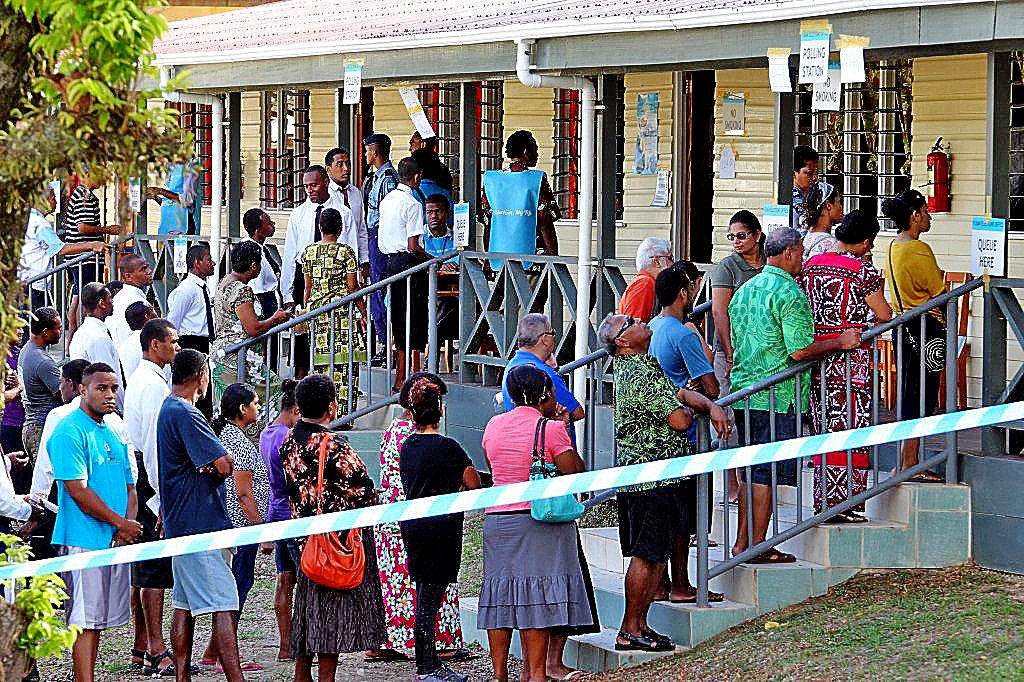Recently the Fiji Labour Party, Unity Fiji Party and the Freedom Alliance Party signed a memorandum of understanding to work towards a united front in the upcoming general elections in 2022 or 2023.
Such an MOU is of limited effect in a proportional representation system where the electoral success of a party is incumbent on the aggregate electoral share of individual parties.
A proportional representation system is based on political parties, and does not recognise coalitions of political parties, in seat allocation. If a group of people have similar political ideologies and goals, the proportional representation system requires them to be in the same party to be able to have a united front.
Election threshold
The 5 per cent election threshold is proving to be a significant threat to the sustainability of a multi-party system in Fiji. For a nation that is deeply divided along ethnic cleavages, creating the right conditions to sustain a multi-party system remains our best hope for bringing a shift towards ideology-based politics and political parties, and ending the preoccupation with race.
The electoral arrangements in the 1997 constitution which aimed to moderate ethnic politics in Fiji proved to be a disaster in practice, effectively leading to an ethnic-based two-party system by the time the third elections were held under the alternative vote (AV) system in 2006.
Taking lessons from this experience, the National Council for Building a Better Fiji (NCBBF) formed after the 2006 coup proposed that “some form of (a) Proportional Representation (PR) electoral system is desirable in Fiji” noting that the previous AV system had “strengthened extremist elements and weakened the forces of political moderation”.
The two elections that have been held under the new PR system have led, at least, to the inclusion of a third party in Fiji’s legislature, however, smaller parties are finding themselves caught in a vicious cycle of exclusion due to the 5 per cent threshold.
The danger is that, this can effectively lead us back to a two-party system as smaller parties either wind up or merge with larger parties – the very outcome that the NCBBF had sought to avoid when it proposed the adoption of a PR system.
The 5 per cent election threshold is entrenched in Fiji’s Constitution, which makes it extremely difficult to change.
Even if political will was there to amend the constitution, it would need getting 75 per cent approval from Fijian voters through a referendum (a $40 million exercise).
Given this, we have proposed previously to the parliamentary committee to consider changing seat allocation method to the Sainte Lague from the current D’Hondt to make it fairer to smaller parties. This is feasible before the next general election.
Formulating effective strategies
For a political party to be successful, formulating strategies keeping in mind the “rules of the game” becomes critical. A football coach, for instance, who is not fully conversant with the rules of the sport can not come up with a winning game plan. Given the rules of the game in Fiji, or the electoral system, contesting parties need to get a number of fundamentals right.
Perhaps the most important one would be the need to ensure that you are able to field a full line-up of players (contesting candidates). Since every single vote matters for the party, it is absolutely critical to have the maximum number of candidates contesting for the party.
That being said, it is important to take cognisance of the factors that are making it difficult for smaller parties to field a full of candidates.
Parties are struggling to pay candidates deposits, which are one of the highest in the world and have a high threshold for refund.
I will be discussing this aspect fully in a later article. A second factor is the difficulty in finding credible (and popular) candidates given the existing political context in the country, which discourages some aspirants from contesting. Then there are also rules such as bans on trade union officials or requiring people to leave their employment to contest. These factors, among others, stack the odds against emerging, or smaller parties, and impede political participation in our democracy.
When strategising, political parties/interests need to realise that “united fronts” or any pre-election coalition arrangements will not be useful at all in helping them win elections, get representation in Parliament, or as the objective seems to be – to oust the incumbent party from power.
In the PR system, different parties are all competing against each other, and not competing together against the incumbent party. If you wish to have a united front to oust the incumbent party, you have a single option – merge and form a single party, which also increases your prospects of crossing the election threshold and fielding a full complement of credible candidates with the ability to attract votes.
NILESH LAL is the executive director of Dialogue Fiji. The views expressed in this article do not necessarily reflect the views of this newspaper.


